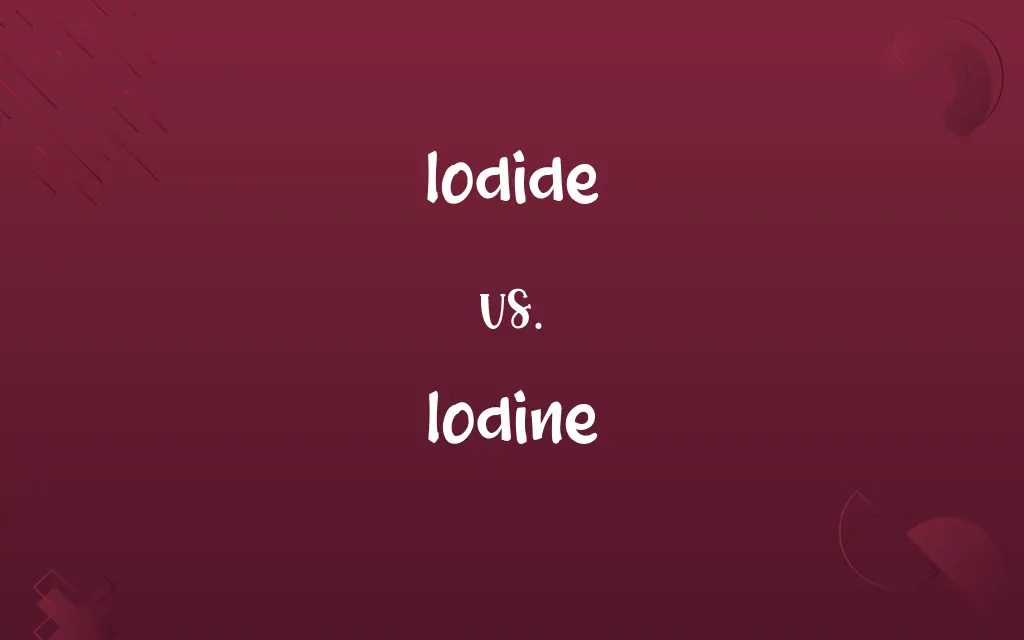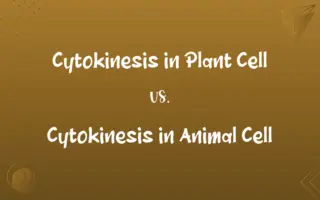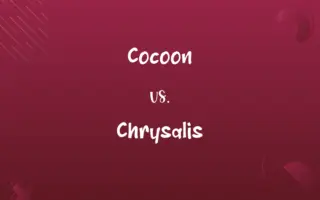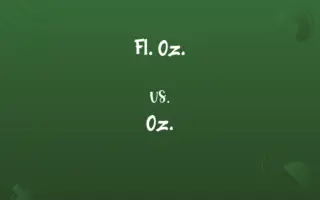Iodide vs. Iodine: Know the Difference

By Shumaila Saeed || Updated on December 25, 2023
Iodide is a negatively charged ion of Iodine, a chemical element essential for thyroid function, with Iodine being the pure elemental form.

Key Differences
Iodide is a form of Iodine where the element carries a negative charge, making it an ion. This ionized form allows Iodide to be more soluble and bioavailable, particularly in biological systems. In contrast, Iodine is the elemental form, a non-metallic solid under standard conditions. It is less reactive than its ionized counterpart but is essential for synthesizing thyroid hormones.
Shumaila Saeed
Dec 15, 2023
Iodide is typically found in saltwater, soil, and certain foods, where it is required for nutrition, especially for thyroid health. This ion is also used in medical imaging and as a nutritional supplement. Iodine, in its elemental form, has a dark purple-black color and a pungent odor. It is used in a range of applications, including disinfectants, pharmaceuticals, and photographic chemicals.
Shumaila Saeed
Dec 15, 2023
In terms of reactivity, Iodide ions are more reactive than elemental Iodine. This reactivity is crucial in biological processes, such as hormone production in the thyroid gland. Elemental Iodine, while less reactive, can be dangerous in its pure form and is usually handled with care in laboratory and industrial settings.
Shumaila Saeed
Dec 15, 2023
Iodide's role in the human body is predominantly in the form of thyroid hormones, where it is incorporated into the hormones T3 and T4. In contrast, elemental Iodine is rarely found in the human body; it is usually ingested in a different form and then converted to iodide for biological use.
Shumaila Saeed
Dec 15, 2023
The chemistry of Iodide is characterized by its tendency to form salts with metals, such as potassium iodide. Elemental Iodine, however, is known for forming diatomic molecules (I2), which are used in various chemical reactions and processes.
Shumaila Saeed
Dec 15, 2023
ADVERTISEMENT
Iodide and Iodine Definitions
Iodide
Iodine is a chemical element, essential for human health.
Iodine is necessary for proper metabolic function.
Shumaila Saeed
Dec 04, 2023
Iodine
Iodine is converted to iodide in the human body.
When ingested, iodine is quickly transformed into iodide for biological use.
Shumaila Saeed
Dec 04, 2023
Iodide
Iodine appears as a dark purple-black solid at room temperature.
Crystalline iodine can be seen in its solid form in chemistry labs.
Shumaila Saeed
Dec 04, 2023
Iodine
Iodine appears as a dark purple-black solid at room temperature.
Crystalline iodine can be seen in its solid form in chemistry labs.
Shumaila Saeed
Dec 04, 2023
Iodide
Iodine is used as a disinfectant and antiseptic.
Iodine solutions are applied to wounds to prevent infection.
Shumaila Saeed
Dec 04, 2023
ADVERTISEMENT
Iodine
Iodine is used as a disinfectant and antiseptic.
Iodine solutions are applied to wounds to prevent infection.
Shumaila Saeed
Dec 04, 2023
Iodide
Iodine is converted to iodide in the human body.
When ingested, iodine is quickly transformed into iodide for biological use.
Shumaila Saeed
Dec 04, 2023
Iodine
Iodine can be dangerous in its elemental form.
Handling elemental iodine requires safety precautions due to its toxicity.
Shumaila Saeed
Dec 04, 2023
Iodide
Iodine can be dangerous in its elemental form.
Handling elemental iodine requires safety precautions due to its toxicity.
Shumaila Saeed
Dec 04, 2023
Iodine
Symbol I A lustrous, purple-black, corrosive, poisonous halogen occurring as a diatomic molecule, I2, that easily sublimes to give a purple gas and is a trace element essential for proper thyroid function. Radioactive isotopes, especially I-131, are used as medical tracers and in thyroid disease diagnosis and therapy. Iodine compounds are used as germicides, antiseptics, and dyes. Atomic number 53; atomic weight 126.9045; melting point 113.7°C; boiling point 184.4°C; density of gas 11.27 grams per liter; specific gravity (solid, at 20°C) 4.93; valence 1, 3, 5, 7. See Periodic Table.
Shumaila Saeed
Dec 01, 2023
ADVERTISEMENT
Iodide
Univalent anionic iodine, or a compound of iodine, especially a binary compound of iodine with a more electropositive element.
Shumaila Saeed
Dec 01, 2023
Iodine
An antiseptic preparation containing iodine in solution, used to treat wounds.
Shumaila Saeed
Dec 01, 2023
Iodide
(inorganic chemistry) A binary compound of iodine and another element or radical.
Shumaila Saeed
Dec 01, 2023
Iodine
A chemical element (symbol: I) with an atomic number of 53; one of the halogens.
Shumaila Saeed
Dec 01, 2023
Iodide
A binary compound of iodine, or one which may be regarded as binary, in which iodine has a valence of -1; as, potassium iodide.
Shumaila Saeed
Dec 01, 2023
Iodine
A nonmetallic element, of the halogen group of atomic number 53, occurring always in combination, as in the iodides. When isolated it is in the form of dark gray metallic scales, resembling plumbago, soft but brittle, and emitting a chlorinelike odor. Symbol I. Atomic weight 126.90. If heated, iodine volatilizes in beautiful violet vapors.
Shumaila Saeed
Dec 01, 2023
Iodine
A nonmetallic element belonging to the halogens; used especially in medicine and photography and in dyes; occurs naturally only in combination in small quantities (as in sea water or rocks)
Shumaila Saeed
Dec 01, 2023
Iodine
A tincture consisting of a solution of iodine in ethyl alcohol; applied topically to wounds as an antiseptic
Shumaila Saeed
Dec 01, 2023
Iodine
Iodine is a chemical element, essential for human health.
Iodine is necessary for proper metabolic function.
Shumaila Saeed
Dec 04, 2023
Repeatedly Asked Queries
Can iodine be found in food?
Yes, iodine is present in foods, but often in the form of iodide.
Shumaila Saeed
Dec 15, 2023
What is the main difference between iodide and iodine?
Iodide is the ionized form of iodine, which is the elemental form.
Shumaila Saeed
Dec 15, 2023
How does the body use iodine?
The body converts iodine to iodide, which is then used to make thyroid hormones.
Shumaila Saeed
Dec 15, 2023
Why is iodide important for health?
Iodide is crucial for thyroid hormone production and overall metabolic function.
Shumaila Saeed
Dec 15, 2023
Is iodine safe to ingest in its elemental form?
Ingesting elemental iodine is not recommended; it's usually consumed in the form of iodide.
Shumaila Saeed
Dec 15, 2023
Is iodine used in medical procedures?
Yes, iodine is used as a disinfectant and in contrast media for imaging.
Shumaila Saeed
Dec 15, 2023
What happens if you don't get enough iodide?
Iodide deficiency can lead to thyroid disorders like goiter and hypothyroidism.
Shumaila Saeed
Dec 15, 2023
Can you get iodide from non-food sources?
Yes, iodide can be taken as a dietary supplement.
Shumaila Saeed
Dec 15, 2023
What are common sources of iodide?
Iodized salt, seafood, and dairy products are common sources of iodide.
Shumaila Saeed
Dec 15, 2023
Can iodine be used in photography?
Yes, iodine is used in certain photographic chemicals.
Shumaila Saeed
Dec 15, 2023
What form of iodine is used in table salt?
Table salt usually contains iodine in the form of iodide.
Shumaila Saeed
Dec 15, 2023
How is iodide used in the thyroid gland?
The thyroid gland uses iodide to produce thyroid hormones.
Shumaila Saeed
Dec 15, 2023
What is the role of iodine in the environment?
Iodine is naturally present in the environment, especially in the ocean.
Shumaila Saeed
Dec 15, 2023
Is iodine reactive?
Elemental iodine is less reactive than iodide but can be hazardous.
Shumaila Saeed
Dec 15, 2023
Can iodine deficiency affect children?
Yes, iodine deficiency in children can impact cognitive development.
Shumaila Saeed
Dec 15, 2023
Are there risks to taking too much iodide?
Excessive iodide intake can lead to thyroid dysfunction.
Shumaila Saeed
Dec 15, 2023
How do iodide and iodine interact chemically?
Iodine becomes iodide when it gains an electron.
Shumaila Saeed
Dec 15, 2023
Is iodide or iodine more soluble in water?
Iodide is more soluble in water compared to elemental iodine.
Shumaila Saeed
Dec 15, 2023
How does iodine help in wound care?
Iodine acts as an antiseptic, killing bacteria and preventing infection.
Shumaila Saeed
Dec 15, 2023
What is the recommended dietary intake of iodine?
The recommended intake varies by age and health condition, typically around 150 micrograms daily for adults.
Shumaila Saeed
Dec 15, 2023
Share this page
Link for your blog / website
HTML
Link to share via messenger
About Author
Written by
Shumaila SaeedShumaila Saeed, an expert content creator with 6 years of experience, specializes in distilling complex topics into easily digestible comparisons, shining a light on the nuances that both inform and educate readers with clarity and accuracy.































































